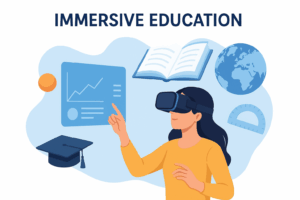
MEET Digital Culture Center and Scuola di Robotica combine their expertise and visions to create a training initiative: the Immersive Education Program. This program enhances
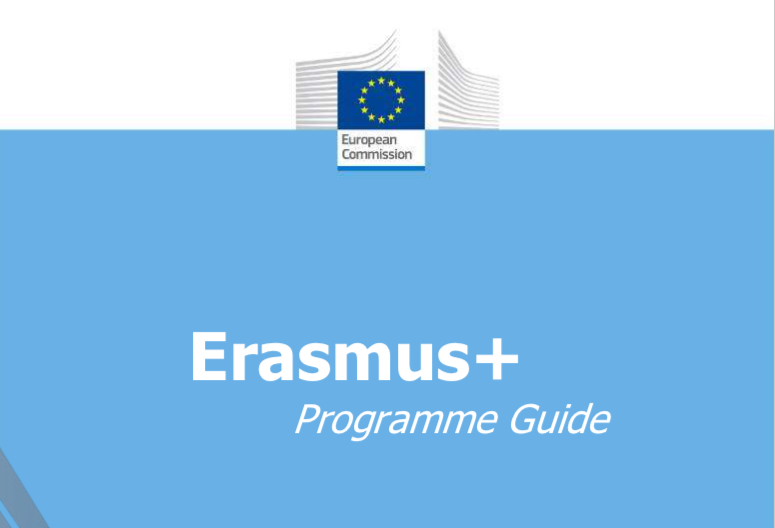
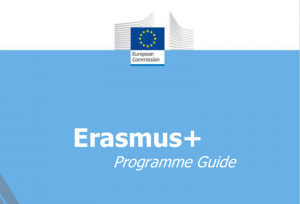 The European Commission recently came out with the Guidelines 2021 of the Erasmus plus that contain the rules for the European project activities of next Septennate (we attach it at the bottom).
The European Commission recently came out with the Guidelines 2021 of the Erasmus plus that contain the rules for the European project activities of next Septennate (we attach it at the bottom).
School of Robotics is ready to participate. We are preparing, with some European partners, our applications to be submitted in the Call with deadlines 11 and 20 May 2021.
The General Objectives of the Guidelines:
The general objective of the Programme is to support, through lifelong learning, the educational, professional and personal development of people in education, training, youth and sport, in Europe and beyond, thereby contributing to sustainable growth, quality jobs and social cohesion, to driving innovation, and to strengthening European identity and active citizenship. As such, the Programme shall be a key instrument for building a European Education Area, supporting the implementation of the European strategic cooperation in the field of education and training, with its underlying sectoral agendas, advancing youth policy cooperation under the Union Youth Strategy 2019-2027 and developing the European dimension in sport.
The Priorities:
Inclusion and Diversity
Digital Transformation
Environment and fight against climate change
Participation in democratic life
and the Important Characteristics, such as
Protection, health and safety of participants
Multilingualism
International dimension
Recognition and validation of skills and qualifications
Communicating projects and their results to maximise impact
Erasmus+ Open Access Requirement for educational materials
Erasmus+ Open Access for research and data
are topics and methodologies that School of Robotics already applies.
School of Robotics in Italy is interested in expanding the Partnership with the Nations in the EU area, Associated Countries and Partner Countries (see Partner Countries, pg. 33-35 of the attached Guideline) and we can be technical-scientific Partner in all projects that concern the topics of Digital Transformation, Inclusion and Diversity and Environment, and in projects that have as objectives the support of STEM and STEAM (Arts) learning, Media Literacy, responsible use of new media and social, understanding and use of software, and application of digital and robotic technologies to teaching.
We enclose the Erasmus Programme Guide, our PIF, and an outline of our mission and activities.

MEET Digital Culture Center and Scuola di Robotica combine their expertise and visions to create a training initiative: the Immersive Education Program. This program enhances
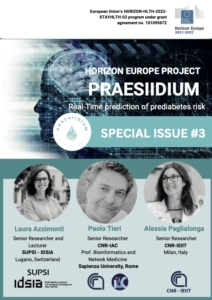
For the achievement of the Horizon Europe project results, PRAESIIDIUM, numerous research groups are combining their expertise to develop innovative strategies for the prevention of
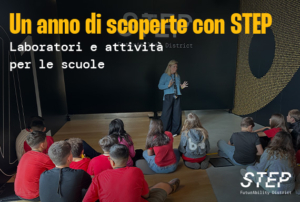
STEP FuturAbility District is a dynamic, interactive experiential journey that allows students to immerse themselves in today’s ongoing digital revolution. For schools, we offer the
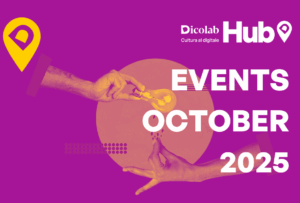
The autumn program in the regional Hubs of the Dicolab. Digital Culture project is packed with opportunities for those who want to learn about the